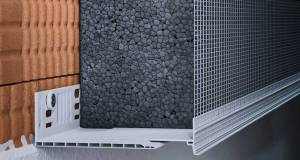- Government
- Posted
Pay-as-you-save scheme launched in the UK

The energy and climate change secretary, Ed Miliband, has announced details of a "green loans" scheme to help people pay for improvements to their homes to make them more energy efficient.
The scheme, which would see loans remain attached to the house where insulation, solar panels or other green technology was installed, aims to overcome the financial barriers and upfront costs people face when trying make their homes greener.
The energy and climate change secretary, Ed Miliband, has announced details of a "green loans" scheme to help people pay for improvements to their homes to make them more energy efficient.
The scheme, which would see loans remain attached to the house where insulation, solar panels or other green technology was installed, aims to overcome the financial barriers and upfront costs people face when trying make their homes greener.
With the expense of green technology and people moving house on average every nine to 12 years, householders may not have a long enough period for paying back the loan before they move to ensure they save more on their bills than the cost of the repayments.
Around 500 homes in Birmingham, Sunderland, Stroud and the London borough of Sutton have been testing out a £4m pilot for the Pay As You Save programme.
In the pilot, homeowners made repayments for green technologies over a long enough period so payments are lower than the predicted savings on energy bills, though the financial packages also included options in which they paid some of the upfront costs.
The whole house energy makeovers, which the government wants to roll out to improve the energy efficiency of the UK's 22m homes, will provide a range of technologies including insulation and small-scale renewables such as solar panels or ground source heat pumps to provide energy.
Miliband said: "Helping people save energy at home can make it easier and cheaper to keep homes warm and appliances running. It is also the best way to cut our carbon emissions.
"This new approach will allow people to pay for home improvements after they have had them installed rather than before.
"More people will be able to get the work they want done. That means less energy used, which is good for the environment, and lower bills, which is good for families, particularly when we have cold weather like we did this winter."
The Department of Energy and Climate Change (Decc) has already been in discussions with a number of sectors including retail and banking over how the loans can be delivered, while legislation will need to be introduced to allow for the loans to be attached to homes.
Miliband, who is visiting the Ecobuild exhibition on sustainable building at Earl's Court in London today, also announced the follow-up scheme to the carbon emissions reduction target (Cert) programme which requires power companies to help people make their homes more energy efficient.
Until the practice was outlawed by ministers, some companies focused their efforts under the Cert scheme on distributing energy-saving lightbulbs to households, which was a cheap option but which critics said did little to cut emissions.
(c) Guardian
The scheme, which would see loans remain attached to the house where insulation, solar panels or other green technology was installed, aims to overcome the financial barriers and upfront costs people face when trying make their homes greener.
With the expense of green technology and people moving house on average every nine to 12 years, householders may not have a long enough period for paying back the loan before they move to ensure they save more on their bills than the cost of the repayments.
Around 500 homes in Birmingham, Sunderland, Stroud and the London borough of Sutton have been testing out a £4m pilot for the Pay As You Save programme.
In the pilot, homeowners made repayments for green technologies over a long enough period so payments are lower than the predicted savings on energy bills, though the financial packages also included options in which they paid some of the upfront costs.
The whole house energy makeovers, which the government wants to roll out to improve the energy efficiency of the UK's 22m homes, will provide a range of technologies including insulation and small-scale renewables such as solar panels or ground source heat pumps to provide energy.
Miliband said: "Helping people save energy at home can make it easier and cheaper to keep homes warm and appliances running. It is also the best way to cut our carbon emissions.
"This new approach will allow people to pay for home improvements after they have had them installed rather than before.
"More people will be able to get the work they want done. That means less energy used, which is good for the environment, and lower bills, which is good for families, particularly when we have cold weather like we did this winter."
The Department of Energy and Climate Change (Decc) has already been in discussions with a number of sectors including retail and banking over how the loans can be delivered, while legislation will need to be introduced to allow for the loans to be attached to homes.
Miliband, who is visiting the Ecobuild exhibition on sustainable building at Earl's Court in London today, also announced the follow-up scheme to the carbon emissions reduction target (Cert) programme which requires power companies to help people make their homes more energy efficient.
Until the practice was outlawed by ministers, some companies focused their efforts under the Cert scheme on distributing energy-saving lightbulbs to households, which was a cheap option but which critics said did little to cut emissions.
(c) Guardian
Last modified on Tuesday, 16 March 2010 00:39






